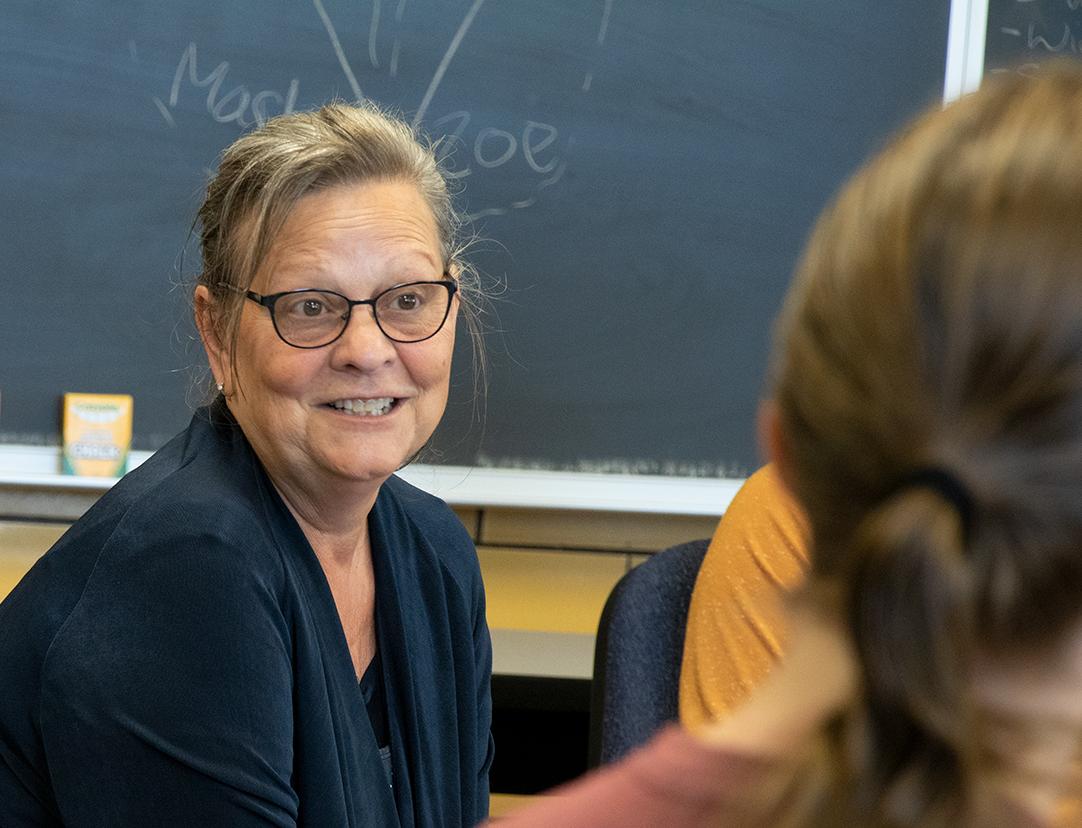
Instruction and orientation sessions are a popular way to help faculty and students with any part of the research process. In-person and online sessions are available. Appointments for individualized help are also available.
The library talked with Deb Murray, Master of Science in Mental Health Counseling program, to inquire about her experience with library instruction. Deb brings her master's students into the library for a three-phase approach to instruction that includes a library tour and introduction to library databases, an introduction to interlibrary loan and Refworks, and a review of Refworks and literature review best practices.
What caused you to approach the library with your instruction request?
Murray: I wanted students to learn efficient ways to conduct and store their research. At master’s level, students need efficiency because they are so busy. I like integrating library instruction into their coursework so that they learn before they get into their major papers. Also, it allows the students to get introduced to the library staff.
What is a favorite or surprising thing that you learned in an instruction session?
Murray: Watching students learn how to store their research.
What is the difference between pre and post-instruction when it comes to student work?
Murray: Most of the struggles happened before the department started the three-phase instruction approach. After library instruction, students seem to get it. Also, after getting some instruction they are more willing to seek out library staff for help.
What are the most useful things your students learned in instruction sessions?
Murray: Understanding the sequencing of research, the various tools available in the library and through the library website. Meeting the library staff. They feel welcome in the library.
Any favorite books you’d like to share?
Murray: Anything by Joseph Heller. The Cry for Myth by Rollo May. The discussion of metaphor and analogy is so important. This approach works well in counseling sessions.
For more information about library instruction sessions or to schedule a session, contact Kim Olson-Kopp at ext. 3263 or Annie Baumann at ext. 3278.